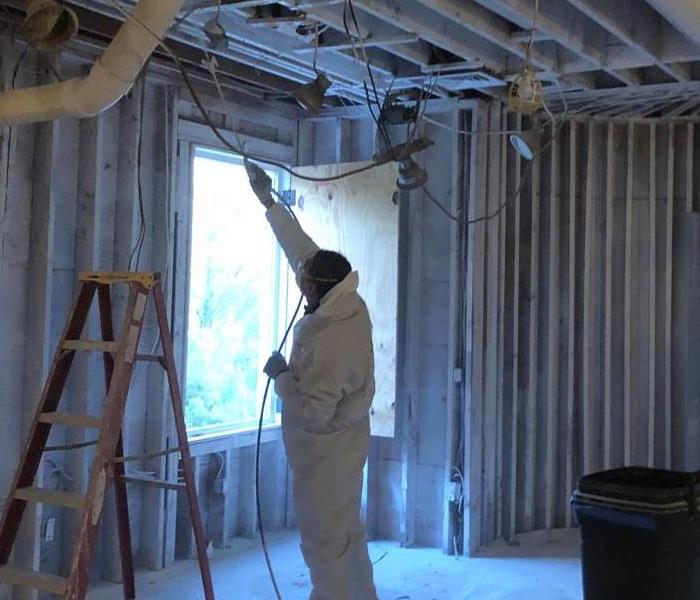Extension Cord Safety: What to Do & What to Avoid Doing
1/10/2020 (Permalink)
Extension cords are both a common and convenient way to bring power to electrical devices. However, when used without proper caution, they can become fire hazards and pose risks to your personal safety.
Follow these tips to help keep your home safe when using extension cords:
Selecting extension cords
- Purchase only cords that have been approved by an independent testing laboratory.
- For outdoor projects, use only extension cords marked for outdoor use.
- Read the instructions (if available) for information about the cord's correct use and the amount of power it draws.
- Select cords that are rated to handle the wattage of the devices with which they'll be used. A cord's gauge indicates its size; the smaller the number, the larger the wire and the more electrical current the cord can safely handle.
- Consider the length you'll need, longer cords can't handle as much current as shorter cords of the same gauge.
- Choose cords with polarized or three-prong plugs.
- For use with larger appliances, thick, round, low-gauge extension cords are best. For smaller appliances and electronics, you can use thin or flat cords.
Using extension cords
- Never remove an extension cord's grounding pin in order to fit it into a two-prong outlet.
- Avoid powering multiple appliances with one cord.
- Never use indoor extension cords outdoors.
- Don't plug multiple cords together.
- Don't run extension cords under rugs or furniture.
- Never tape extension cords to floors or attach them to surfaces with staples or nails.
- Don't bend or coil cords when they're in use.
- Cover unused cord receptacles with childproof covers.
- Never use extension cords that feel hot to the touch.
Caring for extension cords
- Always store cords indoors.
- Unplug extension cords when they're not in use.
- Throw away damaged cords immediately.
- Pull the plug — not the cord — when disconnecting from the outlet.
Remember, extension cords are intended to be temporary wiring solutions. If you find you're using them on a permanent basis, this can be a hazard.
Please call your leading professionals, SERVPRO of Southern Staten Island if you or a loved one experience ramifications on your home at 718-979-4100!






 24/7 Emergency Service
24/7 Emergency Service
